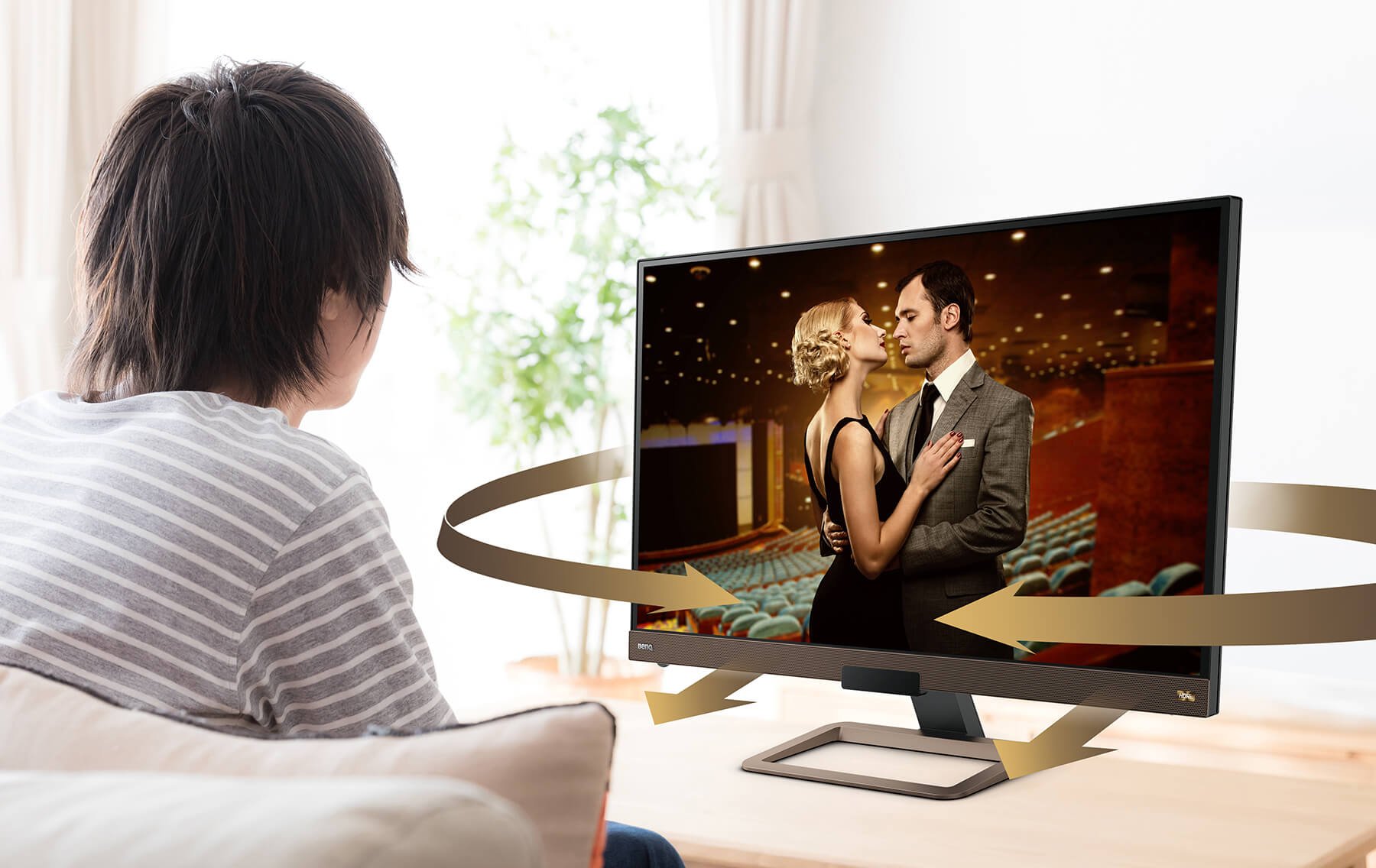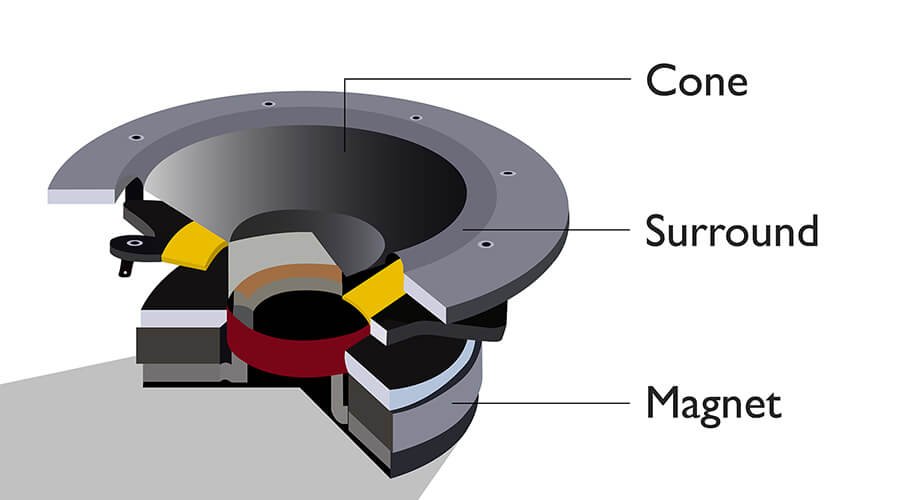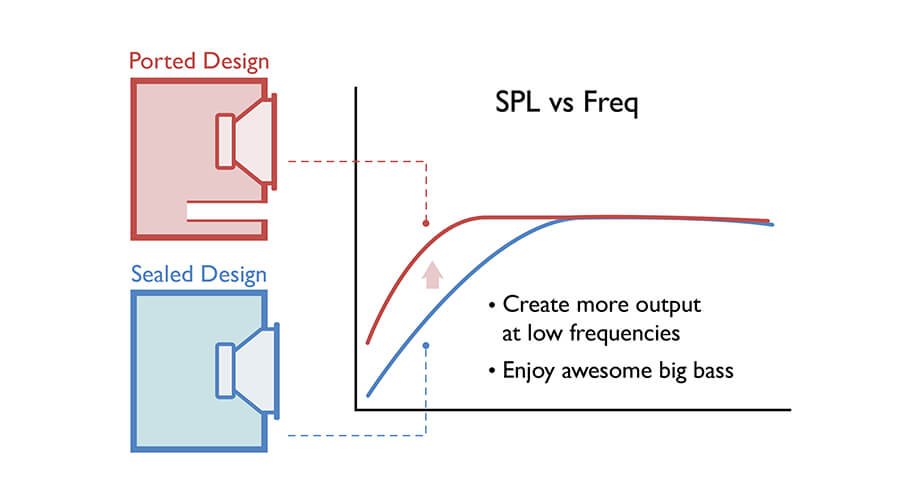


Displays are not often known for superior sound quality, since space, cost, and placement are always limiting factors. And yet, believing in expanding the boundaries of the possible, BenQ has taken the time and effort to make a sound system for displays that produces high quality audio. From each individual speaker to 2.1 channel audio, the sound system expresses the full sound spectrum, from energetic highs to sonorous lows. Within the range of the sound field produced by built-in speakers, sound quality is true to life: clear dialogue, full and expressive details, and precise sound localization. All in all, the system produces high fidelity sound on the level found more often in Hi-Fi sound systems.
Built-in audio systems are commonly bundled with displays these days. However, often users ignore these built-in systems altogether, preferring instead to connect separate, peripheral sound systems. This is because built-in systems usually have a narrow range of frequencies as well as problems with output and distortion at high levels. On top of that, older audio systems have trouble representing accurate, localized sounds that are clear and articulate.
In displays, size and placement have a huge impact on sound quality. For example, extremely thin speakers have issues with low-frequency ranges, audio distortion at higher volumes, and vibrations to the display case. That means that aside from cost alone, technology itself is a hurdle to superior built-in audio quality.
BenQ approached sound design from the perspective of an audiophile. Leveraging the experience of the team that worked on acclaimed BenQ treVolo speaker, it chose 2.1 channel sound for its built-in sound system to ensure that it hits highs, mids, and lows with precision, generating full range and high quality sound. For that purpose, BenQ used proprietary, customized speakers, and even housed the woofer and tweeter in separate speaker cabinets. The woofer itself has a larger cone for a longer stroke, which means a solid low range. However, a longer stroke can cause unwanted vibration, so the treVolo design team used multi-point suspension to ensure high audio quality that isolates vibrations and prevents shaky images. The tweeter is located directly underneath the monitor to emit sound in the direction of the user to satisfy their close-distance listening with high quality sound.

Figure: Front-end speakers are angled toward the user. Back-end speakers emit "wrap around" sound, providing an immersive audio experience.
Space inside thin displays is limited, so only small speakers can be used internally. BenQ solves the conflict between space and sound quality by utilizing a longer cone with a larger surface area that produces excellent quality Hi-Fi sound. It also chose a voice coil and magnet that are vastly different from those in traditional speakers. Its dual voice coil and dual magnet structure uses two voice coils and magnets with a flexible surround enclosure, giving speakers faster reaction, forceful sound, and naturally expansive audio. As for low end sounds, a low distortion aluminum alloy cone and port design allows bass to expand, delivering big speaker quality even in a small space. For its built-in speakers, BenQ uses only neodymium magnets, which are able to perform at high temperatures without distortion, ensuring constant quality in sound output.

Figure: Woofer

Figure: The woofer port design makes clearer and higher output for low-end frequencies
Ordinary displays deliver ordinary sound quality. BenQ’s superior sound design produces high quality audio by using an internal 2.1 channel sound system on displays. Approaching sound design from the perspective an audiophile, BenQ leveraged the experience of its treVolo audio team to produce clear, realistic, textured audio quality that makes for a true-to-life listening experience. In addition, displays come with a built-in digital signal processor (DSP) chip and offer five sound field modes, giving the listener a different mode for each audio source and listening need. Rather than opting for preset modes on the DSP, engineers used principles of psychoacoustics, a field of psychology concerning perception of sound and its physiological effects, while also considering distance and speaker positioning, to custom design each mode. No matter what is on the display, the user can enjoy impeccable audio quality.
Modes included by the treVolo team cover cinema, game, dialog/vocal, rock/party, and pop/live. Cinema is designed especially for watching movies. It adjusts sound for better vocals, clearer dialogue, and enhanced bass. Game mode emphasizes sound localization and realistic, immersive audio. Dialog/vocal emphasizes clear vocal quality, making it best for television shows and language learning. Rock/party is for the music lover, with enhanced bass and 3D audio effects. And pop/live is optimized for realistic, live audio quality.

Figure: Making adjustments for different music/audio makes polished sound effects that carry more feeling and better fit the audio being delivered.